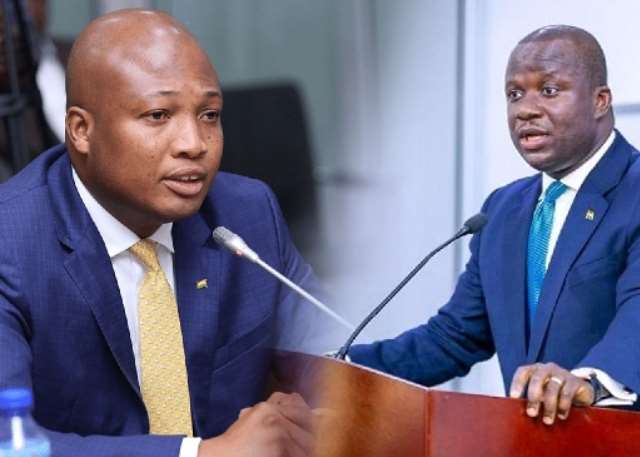The Minority Caucus of Ghana’s Parliament’s Foreign Affairs Committee has expressed serious reservations regarding the recent conduct of the country’s foreign policy communication, particularly concerning the Minister for Foreign Affairs. The caucus, led by Ranking Member Hon. Samuel A. Jinapor, has called for a more measured, consultative, and diplomatic approach from the Minister, emphasizing the importance of tact and discretion in international relations. Their concerns stem from what they perceive as a series of missteps, most notably the abrupt closure of Ghana’s Embassy in Washington, D.C., announced via social media following allegations of fraudulent activity by an individual at the mission. While acknowledging the need for accountability, the caucus criticized the Minister’s handling of the situation, arguing that such a significant decision warranted prior consultation with the Foreign Affairs Committee and a more discreet diplomatic approach.
The Minority Caucus underscored the potential ramifications of the Minister’s actions, highlighting the negative impact on the morale of foreign service officers, Ghana’s international reputation, and the well-being of Ghanaian citizens abroad. They drew a stark contrast between the Minister’s approach and the established practice of handling similar incidents with discretion and professionalism, avoiding public pronouncements that could jeopardize Ghana’s standing in the international community. The caucus emphasized that their concern is not with holding individuals accountable for wrongdoing, but rather with the manner in which such matters are addressed. They advocate for upholding the highest standards of diplomatic practice, eschewing grandstanding and media-driven actions in favor of a more measured and considered response.
Beyond the embassy closure, the caucus also raised concerns about other recent developments within the Foreign Ministry, including the introduction of chip-embedded passports and fluctuating timelines for passport processing at various missions. These issues, according to Hon. Jinapor, have generated public confusion and controversy, largely due to insufficient consultation and internal engagement. The caucus acknowledged that the current administration is still in its early stages and that the Minister may be transitioning from the political style of opposition to the more nuanced realm of international diplomacy. However, they stressed that international relations demand tact, quiet negotiation, and consistency, qualities that appear to be lacking in the Minister’s recent actions.
Hon. Jinapor underscored the fundamental difference between domestic politics and international diplomacy, arguing that the latter is not a platform for political point-scoring or hasty pronouncements. Instead, it requires careful maneuvering and strategic engagement to safeguard the nation’s long-term interests. He revealed that even members of the majority side of the Foreign Affairs Committee, including the Chairman, were not fully informed of certain decisions taken by the Minister, further highlighting the lack of transparency and collaboration between the Ministry and the parliamentary oversight body. This lack of communication not only undermines the committee’s oversight role but also risks creating inconsistencies and confusion in Ghana’s foreign policy.
The Minority Caucus concluded by urging the Foreign Minister to prioritize a more collaborative approach, strengthening his working relationship with the Foreign Affairs Committee and adhering to established institutional processes. They called for a foreign policy agenda characterized by tact, responsibility, and a commitment to upholding Ghana’s international image. The caucus believes that by prioritizing diplomacy over populism and engaging in genuine consultation, Ghana can maintain and enhance its standing on the global stage. They expressed confidence that the Minister would heed their concerns and adopt a more measured and diplomatic approach in the future.
In essence, the Minority Caucus’s message is a plea for a return to the principles of quiet diplomacy and careful consideration that have traditionally defined Ghana’s foreign policy. They argue that the Minister’s recent actions, characterized by public pronouncements and a lack of consultation, represent a departure from these established norms and risk undermining Ghana’s international reputation. The caucus’s call for greater transparency, collaboration, and a more measured approach underscores the importance of diplomacy in navigating the complexities of the global landscape and protecting Ghana’s long-term interests. They believe that a more considered and consultative approach will not only enhance Ghana’s image but also contribute to a more effective and consistent foreign policy.


